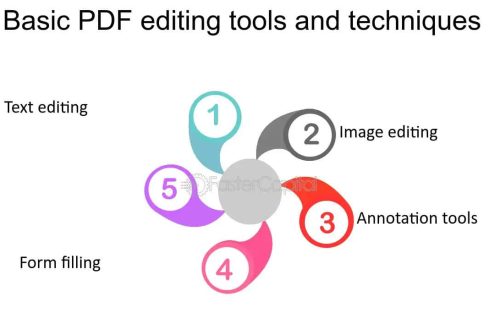Imagine having a best friend who’s a writing genius, SEO guru, and editing whizz all rolled into one. That’s the power of using AI blogging tools in your content creation process. Below, I’ll unwrap the surprising ways AI can boost your blogging game. AI can enhance content creation, optimize SEO, curate content, engage readers, and edit blog posts. With AI, bloggers can streamline their workflow, increase engagement, and improve their blog’s performance.
It’s really about enhancing efficiency, stimulating reader engagement, and personalizing their reading experience. These, in turn, translate into more organic traffic, higher reader retention, and ultimately, a successful blog.
Enhancing Blog Writing with AI
From content generation to keyword research and optimization, AI has the power to revolutionize your blog writing. AI-powered content generation tools, like Jarvis, Articoolo, and Quillbot, can help bloggers conquer writer’s block, maintain consistency, and optimize their content. How? By offering ideas, crafting compelling headlines, and even drafting entire articles. These tools rely on machine learning algorithms to understand context, improve language use, and generate human-like text that’s both engaging and SEO-friendly.
But that’s not all. AI also extends its help in keyword research and optimization. Tools such as Twinword, MarketMuse, or Frase make keyword research and content optimization a breeze. They predict keyword performance, suggest long-tail keywords, and even analyze your competitors’ keyword strategy, thereby boosting your visibility on search engine results.
The Washington Post utilized its in-house AI technology, Heliograf, to generate short reports on the 2016 Rio Olympics and the 2016 US elections. This case study demonstrates the potential of AI in content generation. You can read more about it in the Washington Post’s official announcement.
AI in SEO
AI can also help with SEO which is all about making your website easy to find when people search for topics related to what you offer. For example, some AI tools can analyze your content and suggest improvements to help you rank higher in search engine results.
AI can help with SEO in several ways:
- Keyword Optimization: AI tools like CanIRank can suggest the best keywords to use in your articles. These are the words or phrases people might type into a search engine when looking for the information you provide.
- Readability Improvement: AI can also check if your article is easy to read. Tools like Grammarly or Hemingway Editor can suggest simpler words or sentences to make sure your readers understand your content.
- Backlink Analysis: Backlinks are when other websites link to your website. They’re important for SEO because they show search engines that your website is a trusted source of information. AI tools like BrightEdge can analyze your backlinks and suggest ways to get more high-quality links.
- SEO Trend Prediction: AI can look at patterns and trends in SEO to predict what might become important in the future. Tools like Market Brew can help you stay ahead and make changes to your website before your competitors do.
AI is revolutionizing various aspects of SEO, including keyword research, content optimization, and user experience. Forbes did an in-depth look into this topic here.
AI in Content Curation
AI can also assist with content curation by finding relevant content based on your chosen topics. AI tools like Anders Pink or DrumUp automate the process of content aggregation, using machine learning to comprehend your content themes and preferences, and compile the most relevant content from the web. There’s more. Tools like Curata and Scoop.it! enable you to discover, curate, and share content on your blog, helping you stay relevant and offer consistent value to your readers.
With the help of AI algorithms, OneSpot or Dynamic Yield can provide personalized content recommendations to your readers based on their behavior and preferences. As you can guess, providing tailored content to readers enhances their engagement and makes them feel valued, improving their overall experience on your blog.
For example, the New York Times uses its AI tool, Blossom, to curate content on its social media platforms. Blossom predicts how articles will perform on social platforms and helps the New York Times decide what to post.
AI-Powered Editing, Proofreading and Styling
The role of AI isn’t limited to content creation and curation. AI and machine learning are used in editing and proofreading tools to improve the quality of written content. AI-powered editing tools like Grammarly or ProWritingAid come to the rescue to catch grammar and spelling errors, suggest better phrasing, and even improve the readability of your text. The result is polished, professional content that readers enjoy.
Additionally, AI can analyze your writing and offer suggestions to refine your style and tone. Achieving this consistency becomes more manageable and less time-consuming, building your brand’s voice and maintaining reader trust.
AI-Powered Chatbots and Blog Engagement
Integrating AI-powered chatbots can be a game-changer in enhancing user experience and fostering a sense of community around your blog. These chatbots engage readers by providing instant responses, personalized suggestions, and interactive conversations. This engagement encourages readers to spend more time on your blog and return for future visits.
For example HealthTap uses its AI-powered chatbot, Dr. A.I., to engage with users and provide personalized health information. This case study illustrates the potential of AI-powered chatbots in enhancing user engagement.
Visual Content Creation with AI and Data Visualization
AI can also assist in the creation of visually engaging content. AI-powered tools like DeepArt, Lumen5, or Canva’s content planner can help create engaging images and videos based on text inputs. These visuals make your content more engaging, easier to digest, and more likely to be shared, which can significantly increase your blog’s reach and impact.
Additionally, AI tools like Visme or Infogram assist in creating compelling infographics and data visualizations, making complex information easier to digest and understand for your readers.
Voice and Speech Recognition
In the era of voice assistants, integrating voice recognition technologies in your blog can open new dimensions of user accessibility and interaction. Transcribing audio content with AI-powered tools like Descript or Trint can enhance your blog’s reach and cater to auditory learners, while also tapping into the growing audience of podcast listeners.
List of Tools Mentioned and Their Uses
|
AI Tool |
Description |
Use |
|---|---|---|
|
AI-powered SEO tool that provides data-driven recommendations and SEO strategies |
Keyword optimization, SEO trend prediction |
|
|
AI-driven SEO and content performance marketing platform |
Content optimization, backlink analysis |
|
|
AI-based SEO platform for predictive modeling |
SEO trend prediction, site architecture optimization |
|
|
AI tool for content curation and aggregation |
Content curation, personalized content recommendations |
|
|
AI-powered writing assistant for editing and proofreading |
Grammar and spelling checks, readability improvement |
|
|
AI-powered chatbot for personalized health information |
User engagement, personalized health information |
FAQs
- How Can AI Improve My Blogging Efficiency?
AI can streamline various aspects of blogging—from content creation and keyword research to editing and content curation—making the process more efficient and less time-consuming. - Can AI Really Generate High-Quality Blog Content?
Yes, AI can generate high-quality content, provided it’s guided and reviewed by humans. AI is an excellent tool for brainstorming ideas, drafting content, and optimizing for SEO. - What Are the Benefits of Using AI for Keyword Research?
AI can make keyword research more efficient, provide valuable insights, suggest long-tail keywords, and even analyze competitor keyword strategies, ultimately enhancing your blog’s SEO performance. - How Can AI-Powered Chatbots Engage Readers Effectively?
AI-powered chatbots can provide immediate responses, personalized suggestions, and interactive experiences, thereby engaging readers, fostering a sense of community, and encouraging return visits. - What AI Tools Are Available for Content Curation?
Several AI tools are available for content curation, including Curata, Scoop.it!, Anders Pink, and DrumUp. These tools automate the process of finding, compiling, and sharing relevant content on your blog. - How Does AI Enhance the Editing and Proofreading Process?
AI can automate grammar and spelling checks, suggest better phrasing, and improve the overall readability of your text, ensuring your content is polished, professional, and free of errors. - Which AI Tools Can Help with Visual Content Creation?
AI tools like Canva, DeepArt, and Lumen5 can generate engaging visuals based on text inputs. These tools can enhance your blog by making it more visually appealing and engaging. - What Are the Advantages of Voice Recognition in Blogging?
Voice recognition makes your blog more accessible and user-friendly by allowing hands-free navigation and catering to visually impaired readers. It also opens the door to voice-driven content consumption, which is a growing trend. - Can AI Assist in Transcribing Audio Content Accurately?
Yes, AI-powered tools like Descript and Trint can transcribe audio content quickly and accurately. This feature allows you to convert podcasts or interviews into written content with ease. - How Does AI Contribute to Podcasting Success?
AI can transcribe podcasts, helping you create written content that boosts SEO. It can also suggest topics, draft scripts, and even help with editing, contributing to the overall success of your podcast.
AI has found numerous unusual applications in blogging, enhancing reader engagement, improving content quality, and streamlining the blogging process. As AI continues to evolve and mature, we can expect even more innovative uses of AI in the blogging industry, redefining the way we create and consume blog content. Embracing AI doesn’t mean replacing the human touch, but complementing it to deliver a superior reader experience. The future of blogging is here, and it’s powered by AI.
What are your thoughts on using AI blogging tools? Share your experiences in the comments below or share this article on social media to start a conversation!
Mark, a digital entrepreneur from NYC. He excels in business acquisition, content optimization, and growth strategies. Mark started his career by buying, growing, and selling businesses he bought from Flippa. He’s an SEO enthusiast and enjoys sharing his insights with the DBT community. With his expertise, creativity, and commitment, Mark continues to shape the digital landscape while staying ahead of the game with the latest trends and techniques.
When he’s not immersed in his entrepreneurial pursuits, Mark enjoys the simple pleasures in life. A perfect evening for him consists of pizza, wine, slow jazz, and working on his projects.



